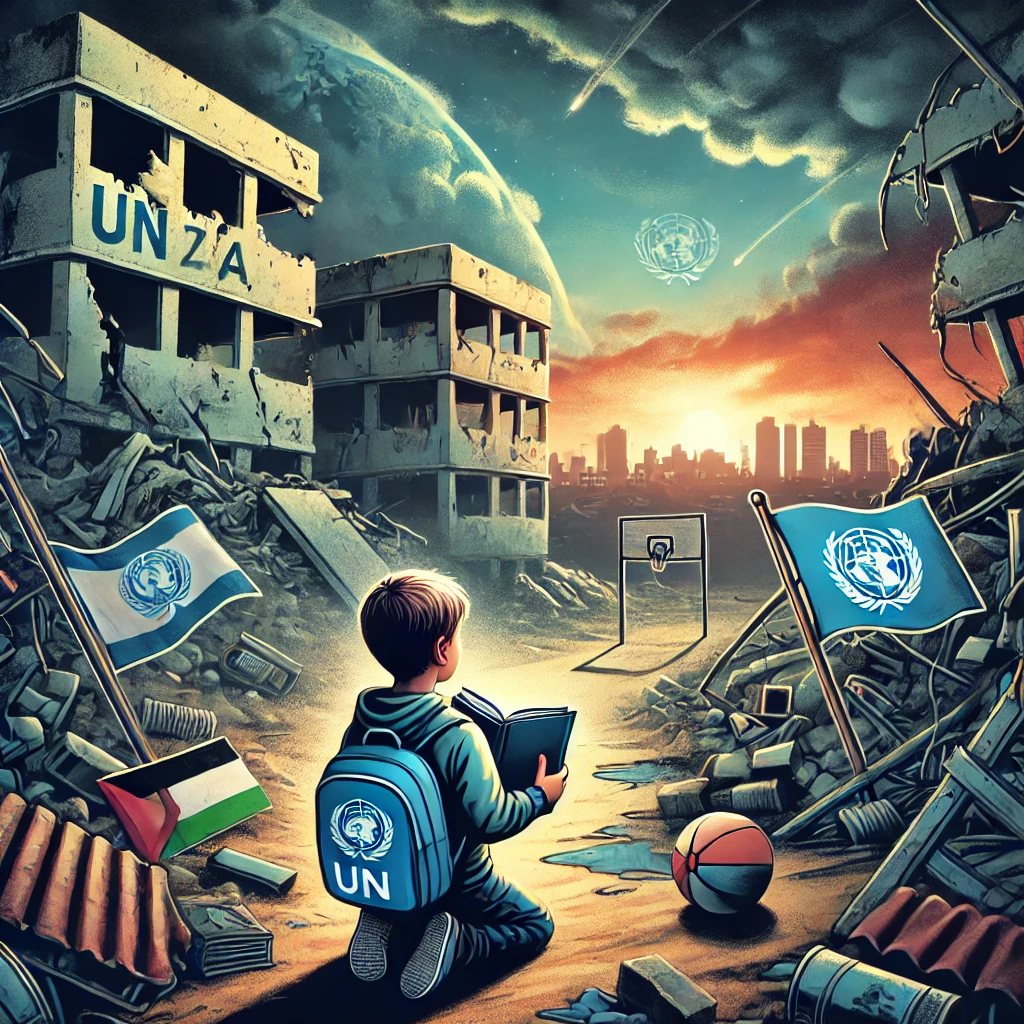Gaza's Education Crisis: 625,000 Children Without Access to Schooling Amid Ongoing Conflict
Gaza City, Gaza - August 9, 2024 - Since October 2023, the ongoing conflict in Gaza has severely disrupted the education system, leaving approximately 625,000 children without access to schooling. More than 370 schools have sustained significant damage from attacks, further exacerbating the crisis. The prolonged instability has created a dire situation for young people in Gaza, with profound implications for their education and mental health.
The Extent of the Crisis
The conflict has taken a heavy toll on Gaza's already fragile education infrastructure. According to reports, the widespread destruction of schools has left hundreds of thousands of children without a safe place to learn. The United Nations estimates that over 370 schools have been either partially or completely destroyed, making it impossible for many students to continue their education in a stable environment. The lack of access to education not only hinders academic progress but also contributes to a growing mental health crisis among the young population.

For many children in Gaza, school represents a sanctuary—a place where they can find a sense of normalcy amid the chaos. The loss of this refuge has left them vulnerable, with limited opportunities for social interaction, emotional support, and intellectual stimulation. The United Nations Relief and Works Agency (UNRWA) has been working tirelessly to provide temporary learning spaces and educational resources, but the challenges are immense (Global Issues).
The Mental Health Impact
The psychological effects of the conflict on Gaza's children are profound. The trauma of living in a war zone, combined with the stress of disrupted education, has led to widespread mental health issues. According to a report by the World Health Organization (WHO), many children in Gaza are exhibiting signs of post-traumatic stress disorder (PTSD), anxiety, and depression. The lack of consistent access to education only exacerbates these problems, as children are left without the structure and support that schools typically provide.
NGOs working in the region have emphasized the need for mental health services to address the growing crisis. However, the ongoing conflict and the blockade on Gaza have severely limited the availability of these services. As a result, many children are left to cope with their trauma on their own, with little to no professional support.
Efforts to Address the Crisis
Despite the overwhelming challenges, various international organizations are striving to address the educational and mental health needs of Gaza's children. The United Nations, in collaboration with local NGOs, has launched several initiatives aimed at restoring access to education. These efforts include the establishment of temporary classrooms, the distribution of educational materials, and the provision of psychosocial support.
One such initiative is the Education in Emergencies program, which seeks to provide a safe learning environment for children affected by conflict. This program, supported by UNICEF and other international partners, has been crucial in ensuring that some children in Gaza can continue their education despite the ongoing violence. However, the scale of the crisis means that these efforts are only a temporary solution, and much more needs to be done to secure a sustainable future for Gaza's youth.
For more detailed information on the situation and ongoing efforts, visit Global Issues and the United Nations Relief and Works Agency (UNRWA).
Conclusion
The education crisis in Gaza is a stark reminder of the broader impacts of prolonged conflict on vulnerable populations. As the international community continues to grapple with the challenges of providing aid in conflict zones, the situation in Gaza highlights the urgent need for sustained support and intervention. The future of an entire generation hangs in the balance, and the global community must act to ensure that Gaza's children have access to the education and mental health services they desperately need.
